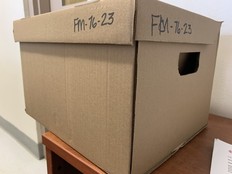Higgs gov't complains to feds over own budget figures being wildly off
It’s as Finance Minister Ernie Steeves announced last week a $247-million budget surplus in the current fiscal year

Article content
Higgs government officials say they’ve complained in frustration to Ottawa that federal revenue estimates are behind why the province’s budget figures continue to be wildly off initial projections.
And they’re seeking better numbers in hope that the looming next budget won’t again see massive variations.
Department of Finance and Treasury Board officials faced a barrage of questions from opposition MLAs, but also government members, at a committee inside the provincial legislature on Wednesday over why the province’s accounting is now routinely off the mark.
It’s as Finance Minister Ernie Steeves announced last week a $247-million budget surplus in the current fiscal year.
That’s after the Higgs government initially forecasted a $40-million surplus in 2023-24.
It also comes after the province recorded a $1.013-billion surplus last year after originally projecting that figure to be just $35 million. A year before that, the Higgs government budgeted a $245-million deficit and ended up with a $769-million surplus.
Officials squarely placed blame on the federal figures they receive, explaining on Wednesday that historically, the province has used the first official estimate it receives from the federal government each year to plug in the amount of money the province can expect from HST and income tax revenue in the fiscal year ahead.
They are numbers the Higgs government should have in hand now ahead of the budget the province tables in spring.
But the feds then update those numbers in the third and fourth quarter of each year.
Finance Deputy Minister Cheryl Hansen said on Wednesday that the department has been “gobsmacked” by the variance in the figures Ottawa has sent.
“We have to step back,” Hansen said.
“We are looking, relooking, over and over again, shaking everything we can shake, looking at our revenue projection so that we are comfortable with it, given what has been happening.
“We are spending a lot more time on the revenue side this year than we have on previous years.”
Liberal and Green MLAs pressed the department for tangible steps towards reaching better figures in the year ahead. Progressive Conservative MLA Daniel Allain later called on officials to continue their explanation of why the numbers are off, maintaining the reason is important.
Todd Selby, the department’s director of fiscal policy, revenue and economic and statistical analysis, answered that the province has approached Ottawa with concerns in the form of a letter from the minister and again during meetings last month.
“We agreed to look at the process and try to improve the forecast,” Selby said.
“We are in talks, we’re trying to look at other models.”
Assistant Deputy Minister Peter Kieley said any relationship between the initial figures provided by Ottawa and the final revenue numbers “have gone out the window.”
“I’m not making excuses here, I’m just explaining that we do rely on the first official estimate Ottawa gives us,” Kieley said.
“They have an awful lot more horses than we do looking at what’s happening at the global economy, the domestic economy, they forecast the national revenue pool based on what we’re seeing.”
Kieley continued that the revenue pool forecasts have come in “dramatically higher” than the federal government anticipated, pointing to the volatility of the economy since the COVID-19 pandemic onward.
Hansen added that forecasting the fiscal direction ahead has been difficult for everyone, noting that, at one point last year, most economists were predicting a recession.
“That hasn’t happened,” she said.
That has led to miscalculation by all provincial governments.
Meanwhile, making an accounting change is difficult, Kieley suggested, noting the department will face criticism if they do or don’t, as accounting standards and actuaries call for using that first official federal number.
“We need to consider if that first estimate is reliable or not,” he said.












Postmedia is committed to maintaining a lively but civil forum for discussion. Please keep comments relevant and respectful. Comments may take up to an hour to appear on the site. You will receive an email if there is a reply to your comment, an update to a thread you follow or if a user you follow comments. Visit our Community Guidelines for more information.